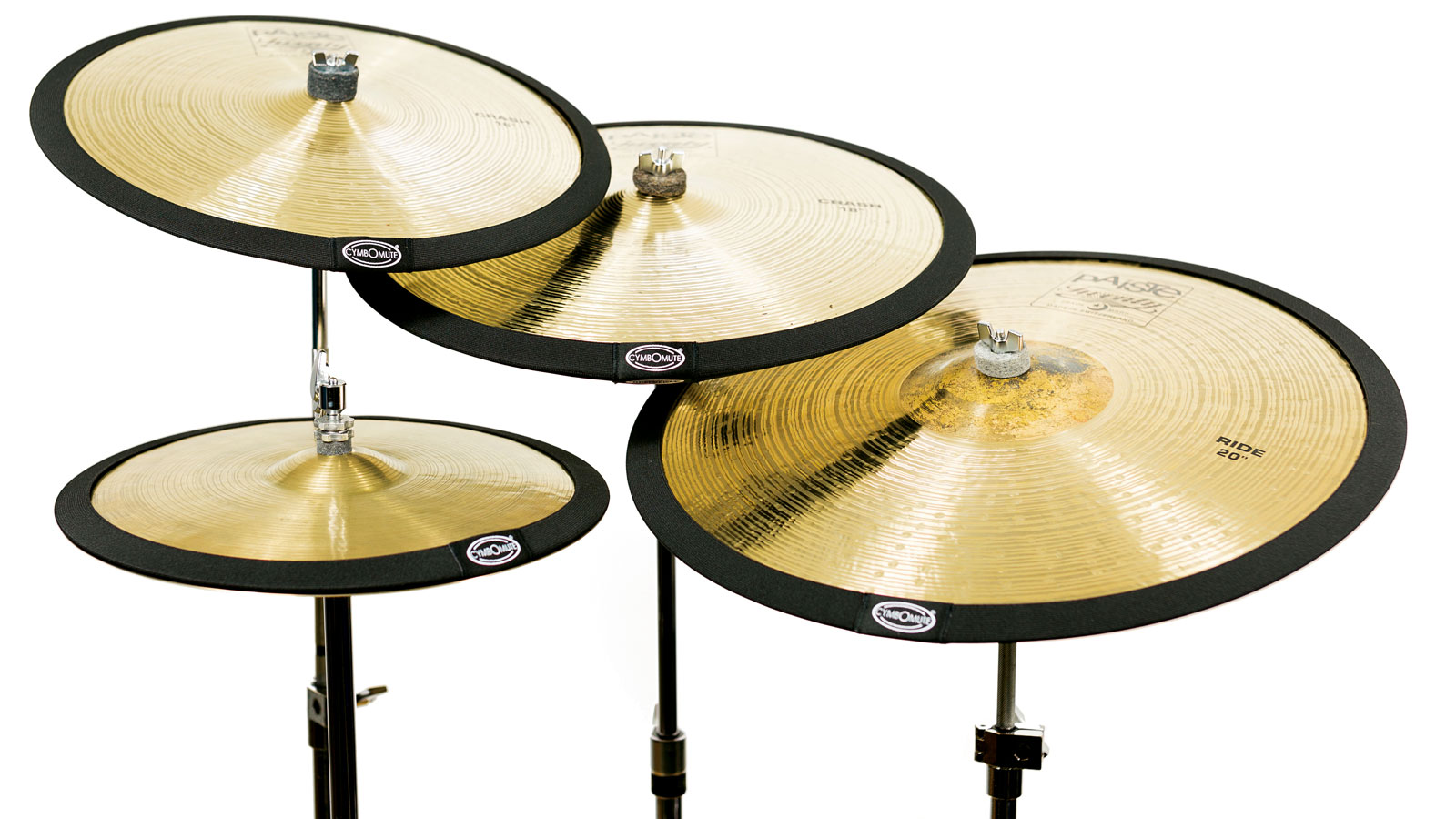MusicRadar Verdict
A clever solution to a longstanding problem. We love them, and so do our neighbours.
Pros
- +
Retains the feel of the cymbal while significantly lowering the volume. Works on all manner of cymbals.
Cons
- -
Doesn't retain the cymbals' tone.
MusicRadar's got your back
It's one of the age-old problems facing drummers: how do you manage to practise at home without driving the neighbours crazy? Your options to date have been to play your kit loud and proud (not really advisable), e-kits or kit dampening. Cymbomute dampeners fall into the latter category and aim to keep the feel and response in your cymbals while removing the volume.
Build
"The feel is spot on, as you keep the usual response of your cymbals despite the reduced decibel levels"
According to Cymbomute's creator Hugh Lawrence, this product is not like traditional neoprene mutes. Hugh says that unlike competitors, Cymbomutes instantly dampen the sound of the cymbal, with soundwaves being absorbed by the mutes.
Made from a robust, specially-woven stretch material, each mute has been designed to offer just the right amount of flex for the cymbal while reducing volume.
Prices for Cymbomutes start at £7, with a set of three for £25. They are available for cymbals of all sizes, from splashes to rides.
Hands On
We put Cymbomutes to the ultimate test. Rather than try them out at our usual rehearsal room, we set our cymbals up (teaming them with a Bill Sanders practice pad) in a small terraced house and got to work.
The first challenge is to put them on, and we must admit that it takes us a few minutes of frustration before we get our head around them. Once we get the first mute in place though, the rest are attached within a matter of seconds.
On playing the cymbals we are pleasantly surprised. The original cymbal sound is gone and what's left in its place is such a low volume that it would be drowned out by quiet conversation - a revelation.
Want all the hottest music and gear news, reviews, deals, features and more, direct to your inbox? Sign up here.
They work across the board: hats, crashes, ride, and even our eardrum-crushing 18" China is well and truly tamed. The feel is also spot on, as you keep the usual response of your cymbals despite the reduced decibel levels, something not offered by standard mutes that cover large sections of a cymbal.
If we're going to be picky - and we are - we'd say that in an ideal world we'd like to maintain the original tone of our cymbals, just at a lower volume.
Instead, especially on larger cymbals, we get a low-volume thud rather than the glorious rainbow of sound that usually spews forth from our metals.
But it's not a perfect world, and for low-volume rehearsal you can't go wrong with Cymbomute dampeners.
